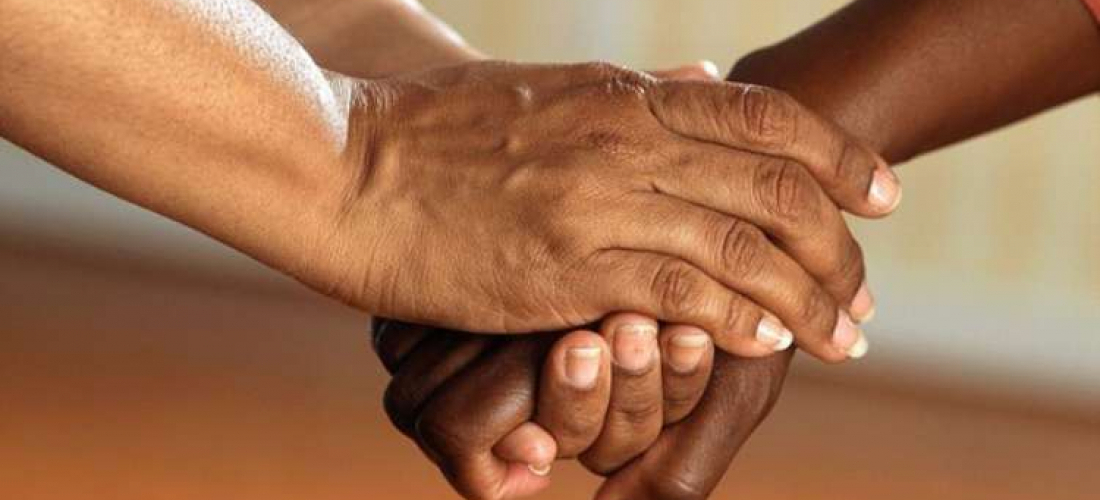
September 25, 2024
Source image : site internet studiokalangou.org
By Oliva Chabi – Member of the AFP Quebec IDEA committee
Across Africa and its diaspora, the tradition of mutual aid and collective solidarity has been a cornerstone of community life for centuries. Rooted in ancestral practices, philanthropy within Black communities takes many forms, from financial support among family members to collective savings systems. These forms of giving, often outside formal financial institutions, have long contributed to the social and economic resilience of Black communities worldwide. In the face of contemporary challenges, these traditions continue to evolve, offering relevant alternatives to traditional philanthropy models.
Tontines: a pillar of the solidarity economy
Tontines are one of the oldest and most widespread solidarity systems in Black communities. This rotating savings and credit mechanism allows members to contribute regularly to a common fund. In turn, each participant receives the full sum, often used for investments in small businesses, educational projects, or housing construction. This collective economic model is particularly effective in meeting local needs, especially in rural areas where access to formal banking services remains limited.
Stuart Rutherford, in “The Poor and Their Money” (2021), highlights the importance of tontines in economies where traditional banking services are inaccessible or unsuitable. These associations enable families to overcome financial crises and undertake ambitious projects without relying on formal financial institutions. In these systems, trust and reciprocity are central values, ensuring their smooth operation.
Senegalese economist Felwine Sarr, in “Les lieux qu’habitent mes rêves” (2021), expands on these ideas, showing how economic models based on cooperation and solidarity can offer alternatives to conventional financial structures. He explains how traditional practices, such as tontines, can contribute to building a more inclusive and sustainable economy.
Family and generational solidarity: a strong force in black philanthropy
Philanthropy within Black communities is also based on strong family and intergenerational solidarity. In these cultures, family often extends beyond close relatives to include cousins, uncles, aunts, and even long-time community members. This network of mutual support becomes a lifeline in times of crisis, whether for medical expenses, children’s education, or post-disaster recovery.
The concept of “Ubuntu,” prevalent in many African-origin societies, illustrates this reality. Meaning “I am because we are,” it expresses a philosophy in which individuals can only thrive by ensuring the well-being of the entire community. Anthropologist John S. Mbiti, in his book “African Religions and Philosophy” (2022), describes this interdependence as a fundamental value of African social life and a pillar of collective solidarity.
Additionally, in “The Prosperity Paradox: How Innovation Can Lift Nations Out of Poverty” (2019), Efosa Ojomo and Clayton Christensen examine how philanthropic traditions and family support networks can play a crucial role in the economic development of African nations. They suggest that traditional systems, such as tontines, be complemented by modern innovations to stimulate sustainable and inclusive growth.
The Black diaspora: a vital support for local economies
The Black diaspora plays a significant role in perpetuating these solidarity practices through remittances. According to the World Bank, remittances from diasporas to their families in sub-Saharan Africa reached $53 billion in 2022.[1] These funds are often allocated to community projects such as building schools, health centers, and modernizing infrastructure. Adapting to technological advances, these traditional solidarity networks now find a new form through digital tontine platforms, which facilitate transparency and fund management while maintaining the core values of trust and collective responsibility.
It is essential to recognize that philanthropy takes various forms around the world. While in North America, generosity is often expressed through donations to charitable organizations, philanthropy in Black communities primarily relies on collective, intergenerational, and community practices. Whether through tontines, family solidarity networks, or diaspora efforts, these traditions illustrate a deep sense of resilience and sharing. Solidarity transcends borders and cultures. It is not just an act of helping, but a philosophy of life, ensuring that no one is left behind.

About the author
A philanthropic development advisor, Oliva Chabi applies her expertise to projects aimed at reducing inequality. With a background in fundraising, she actively advocates for the empowerment of marginalized communities. Global citizen thanks to her international background, she works to promote social equity by engaging with the AFP’s IDEA committee.
[1] World Bank website. Remittances remain resilient but likely to slow, [Online], 2023. [https://www.worldbank.org/en/news/press-release/2023/06/13/remittances-remain-resilient-likely-to-slow?_gl=1*1ui5rba*_gcl_au*MTYxMDQzNTM4OS4xNzI2NzczMDY5] (consulted on September 25, 2024)
